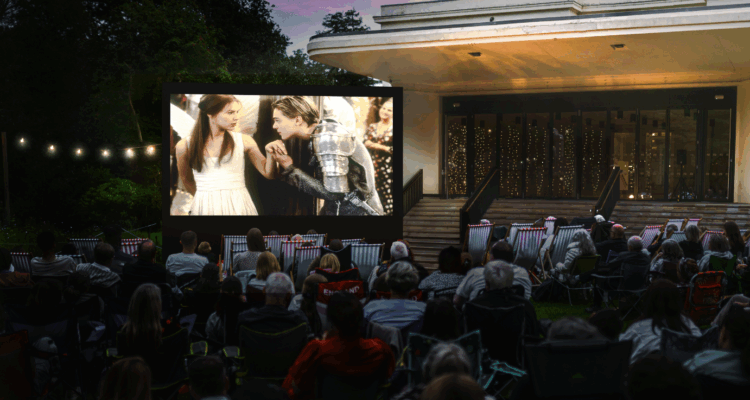There’s no such thing as an ending…
Last night, I finished reading Paradise Lost. And it wasn’t quite a normal reading of Paradise Lost (if such a thing exists?!): I have, since the beginning of April 2009 (yes, that’s fourteen months ago), been reading Paradise Lost with my Get Into Reading group (here's my first report - I only ever got round to doing the one)every Wednesday evening for two hours. “Blimey”, some people day, “that’s tough going.” It has been, yes, but not quite in the way those people seem to think.
It’s not been a slog, it’s been the most incredible reading experience of my life: it’s also not been easy (far, far from it) but it’s been something that the six to nine of us (we can’t all be there every week!) have shared: we’ve laughed, we’ve cried, we’ve been hugely frustrated, we’ve disagreed, we’ve seen eye-to-eye, we’ve been able to talk about the Big Stuff. Our ideas and thoughts have been able to be expressed oenly, in an environment where there’s no judgment, no pressure to say the 'right' thing. Milton’s allowed us to talk about life, death, infinity and everything in between: why were we created pure if we were always meant to fall? What does it mean for us that humans exist in a broken world? How is it that good can only exist when there is an opposite to it, evil?
These questions (none of which we have found the answers to, by the way), have got us all thinking about our lives - each week were were thinking about what it is to be human - and this isn't to say that it was all really heavy going, there have been many laughs and lighter moments along the way too. Milton was writing over 400 years ago, what did that matter? What Milton gets at is the struggle within us all to live our lives: the world is broken, how do we live in it the best we can? What actually is “utter darkness” and are we still in it? We only think of the earth, heaven and hell in terms of space and time – how are we meant to understand eternity?
You get the picture.
How did it feel yesterday, knowing that when I arrived in the evening armed with chocolate Smartie cakes and apple pies, it would be the last time that we would be sitting down with Milton? My gut feeling: sadness. It wasn't joy for the fact that we were to complete this epic poem but a strange sense that I was going to feel emptiness when I finished. This has been far more than about just ‘ticking that one off’, it’s been sitting down with a group of people, discussing what we think and feel, and frankly, what we don’t know we think or feel about something every week. It’s been incredibly powerful. To say it’s been a journey isn’t only a cliché, it’s totally wrong: it’s been an experience. A journey would imply a beginning and an end but what I've felt is that we've not ended anything. It’s been an experience from the first line but by line 649 of Book XI, it’s been the weight of a week’s experience cumulatively: I’m not sure that makes sense but it’s as if each week has had it’s own unique experience and that each week it has the week behind it to add to it and anticipation of the week to come in front of it too.
This week, there was no week in front.
I have felt that we've had Milton in the room each week, that we've conjured him up: how often we have wondered how he did it, even how dare he do it; how sometimes he makes us struggle over a few lines, grappling with the meaning and how sometimes he carries us away in sweeping, descriptive, almost cinematic narratives. So much of Paradise Lost is incredibly visual: it is ripe for the picking for a film director. Yet making a film would be immpossible, surely? How could you begin to film the depths of despair that Satan falls into in Pandemonium; the sheer scale of Satan’s journey from Hell to the gates of Heaven and then to Earth; the very making of our human conscience? This is stuff not of our world but far, far beyond it.
Satan, who starts of so big – where does he get to? The ‘character’ that was so central to the narrative at the beginning, who seemed (rather scarily) so utterly human really, dwindles away by the end. We were saying when we finished last night, “what happened to Satan, we haven’t seen him for ages?” In fact, it was the first time we’d even really thought about the ‘character’ of Satan for a good few weeks. It’s like now the evil’s been planted, there’s no need for him to exist. The deed’s been done.
Yesterday we were talking about whether it's innate that humans have to believe in something beyond them. If we were closeted away, straight from birth, in an environment untouched by cultural and societal factors (a cave in an Amazonian rain forest, for example), would there still be a part of us that wondered where we came from and that where we came from may be beyond what we can see or know? Or is this a culturally conditioned thing? Do we think that we are fallen beings operating in a broken world because this is what we have grown up to believe? Or do we have an innate sense of the fact that somewhere, beyond us, is the paradise we have fallen from? In our searching for this, are we just like Adam and Eve, not content with what they have in the garden of Eden?
As you can tell, I have to ask far more Big Questions as a consequence of reading this book than I am able to answer. I like that. I like that it has, in a way, shaken me. I don’t know anything more certainly about life than when I began but I do know, far more certainly, that a lot more is uncertain, and that that's okay. It’s not just the text that’s taught me that, it’s the hearing of everyone else’s opinions – the insights, disagreements, similarities and the down right peculiar – that has opened my mind to the fact that there are, in some way, no facts. There are no true beginnings, no real endings: we’re caught up in something in which we cannot know, for certain, the very origin (the creation of the world, that’s not the very beginning), or where it is to end (eternity, that’s certainly not an end); Paradise Lost itself ends with a beginning.
So how did I feel when I finished it? I don’t think I know.
Click here for a few of my highlights from Paradise Lost (it’s been tough to choose and I've tried to keep it short but...).
Share
Related Articles

Open Air Cinema and Theatre FAQ’s
If you were able to snap up tickets to our Open Air programme this summer, check below for any queries…

New Liverpool open air cinema brings movies to the Mansion
NEW FOR 2025: Eight handpicked films will hit the big screen in Calderstones Park this summer as national Shared Reading…

A breath of fresh air! This summer’s outdoor and cultural events at our Calderstones Park home
The Reader serves up a giant scoop of summer arts and entertainment from three special summer garden parties with special…


